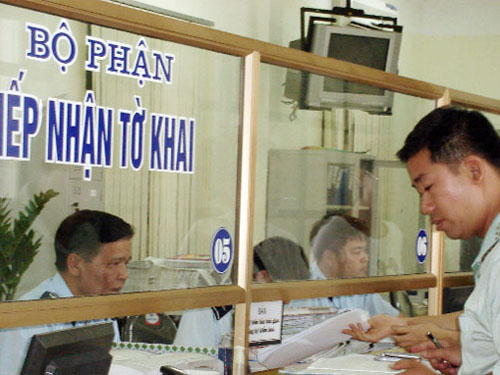Deloitte helping streamline burdensome Vietnamese customs

illustration photo source Bao cong thuong
Deloitte Vietnam partner Bui Ngoc Tuan told VIR that the firm was working with the Ministry of Finance (MoF) and Vietnam General Department of Customs (GDC) to revise some provisions in Circular 128/2013/TT-BTC related to customs procedures, customs supervision and inspection; export tax, import tax, and administration of duties on exported goods and imported goods.
“We’ve worked with the MoF and GDC to improve the situation facing businesses. It’s obviously necessary to classify different goods or status of the importers to boost customs clearance. If goods or the importers are found to pose a customs risk based on an historical assessment, they would need to be examined immediately, but if goods appear to pose no risk they should receive fast-tracked clearance and examinations can be conducted later,” Tuan said, referring to the Circular’s Article 27 which has annoyed importers.
Article 27 has proved particularly unpopular as in order to receive customs clearance, importers now have to leave their imported goods at the border gates or ports where the goods are imported into Vietnam, or in customs agency warehouses or specific storage points for imports. The goods must be examined and compared with the declaration forms before they can receive customs clearance.
The circular took effect on December 1, 2013. Before this circular was enacted, imported goods were examined at their delivery point in the country.
However, Tuan said that “Examination at ports makes it difficult for many enterprises, especially those importing machines, equipment and fixed assets, because these goods can’t be assembled immediately for examination.”
“Agricultural and food products suffer the most through the current regulation, as they need to have the least time possible held up in customs clearance and are required to be stored more carefully than other types of goods. Also the article has made it difficult for customs agencies because they have to deal with too many different types of goods that require examination prior to customs clearance,” he added.
Some enterprises said since the circular was applied, it had taken their goods a week or more to receive customs clearance.
Southern Salt Group’s chairman Tran Quang Phung said his company used to rent a ship to transport 24,000 tonnes of salt from India to Ho Chi Minh City’s Nha Rong-Khanh Hoi port. However, the goods had to wait for customs clearance at the port for a week.
Each day, the company suffered from a loss of tens of thousands of dollars including another $5,000 in fees paid for the ship’s delay. Tardiness in customs clearance had slowed down the company’s production and resulted in a fine from the company’s partner due to slow goods delivery.
A company importing fertilizer also said 6,000 tonnes of fertilizer imported from Switzerland were held at the port for 10 days leading to losses and damage to the quality of the goods.
“Circular 128 is causing major difficulties for importers and their partners, and ports as well. Ports will become overloaded by goods and will find it difficult to operate, while it will take time for customs agencies to take samples of the goods and get them analysed compared with the declaration forms,” the port’s director Le Quang Nhat told VIR.
What the stars mean:
★ Poor ★ ★ Promising ★★★ Good ★★★★ Very good ★★★★★ Exceptional
Latest News
More News
- State corporations poised to drive 2026 growth (February 03, 2026 | 13:58)
- Why high-tech talent will define Vietnam’s growth (February 02, 2026 | 10:47)
- FMCG resilience amid varying storms (February 02, 2026 | 10:00)
- Customs reforms strengthen business confidence, support trade growth (February 01, 2026 | 08:20)
- Vietnam and US to launch sixth trade negotiation round (January 30, 2026 | 15:19)
- Digital publishing emerges as key growth driver in Vietnam (January 30, 2026 | 10:59)
- EVN signs key contract for Tri An hydropower expansion (January 30, 2026 | 10:57)
- Vietnam to lead trade growth in ASEAN (January 29, 2026 | 15:08)
- Carlsberg Vietnam delivers Lunar New Year support in central region (January 28, 2026 | 17:19)
- TikTok penalised $35,000 in Vietnam for consumer protection violations (January 28, 2026 | 17:15)
















 Mobile Version
Mobile Version